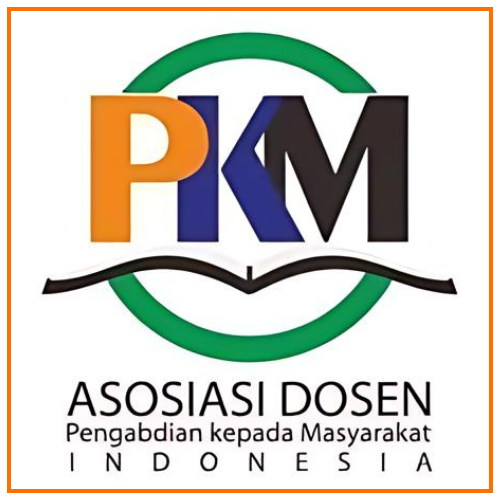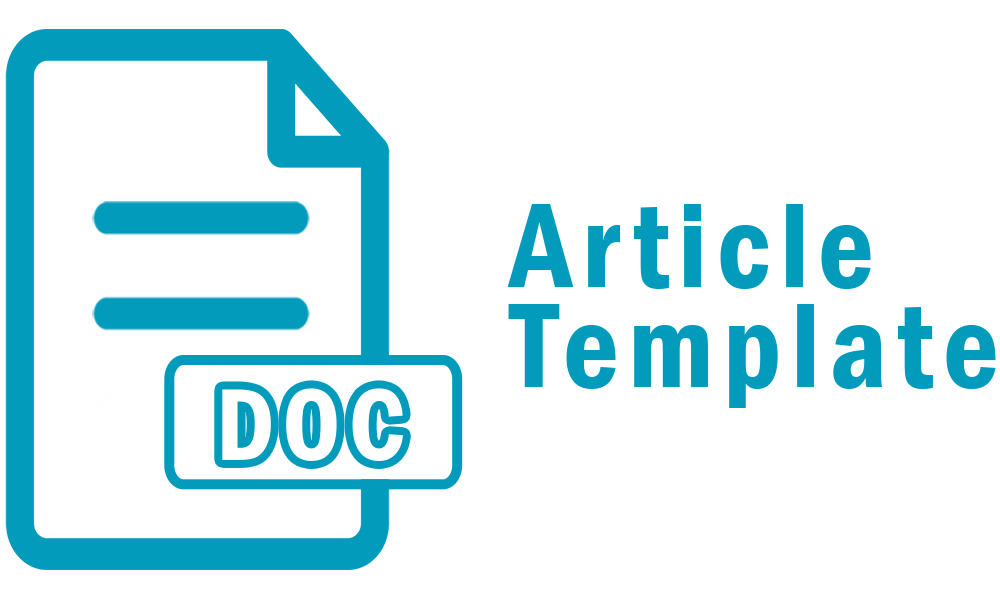Teachers Digital Identity Management towards Their Current e-Professionalism: A Case in Indonesian EFL Context
Abstract
Keywords: Digital literacy; digital identity; e-professionalism; online identity; teacher’s e-professionalism.
Full Text:
PDFReferences
Ayres, L. (2008). Semi-structured interview. The SAGE encyclopedia of qualitative research methods, 1, 810-811.
Balasubramani, V. (2014). When is it appropriate for teachers to call students “rat-like” or “dunderheads” in a pseudonymous blog? Never. Content Regulation, Publicity/Privacy Rights. http://blog.ericgoldman.org/archives/2014/08/when-is-it-appropriate-for-teachers-to-call-students-rat-like-or-dunderheads-in-a-pseudonymous-blog-never.html.
Boyatzis, R. E. (1998). Transforming qualitative information: Thematic analysis and code development. sage.
Braun, V., & Clarke, V. (2006). Using thematic analysis in psychology. Qualitative research in psychology, 3(2), 77-101. https://doi.org/10.1191/1478088706qp063oa
Carpenter, J., & Harvey, S. (2019). Obstacles, travails, and barriers, oh my! Educators perspectives on challenges in professional social media use. In Society for Information Technology & Teacher Education International.
Coicaud, J. M. (2002). Legitimacy and politics: a contribution to the study of political rights and political responsibility. Cambridge University Press.
Duke, V. J. A., Anstey, A., Carter, S., Gosse, N., Hutchens, K. M., & Marsh, J. A. (2017). Social media in nurse education: Utilization and e-professionalism. Nurse Education Today, 57, 8–13. https://doi.org/10.1016/j.nedt.2017.06.009
Engeness, I. (2020). Developing teachers digital identity: towards the pedagogic design principles of digital environments to enhance students learning in the 21st century. European Journal of Teacher Education, 1-19.
Fenwick, T. (2016). Social media, professionalism, and higher education: A sociomaterial consideration. Studies in Higher Education, 41, 664-677. https://doi.org/10.1080/03075079.2014.942275
Gonne-Victoria, B., Lécuellé, G., & Sasaki, N. (2017). Students' perceptions of online personal branding on social media sites.
Gouveia, L. M. B. (1997). A Internet, oportunidade ou ameaça ao Professor?. Revista do Departamento de Ciências da Administração da UFP, Dezembro, Porto.
Havea, P. H., & Mohanty, M. (2020). Professional development and sustainable development goals. Springer Nature.
Henderson, K. E. (2019). They posted what? Recruiter use of social media for selection. Organizational Dynamics.
Hillman, S., Hillman, A., Neustaedter, C., & Pang, C. (2019). “I have a life”: Teacher communication & management outside the classroom. CHI ’19 Extended Abstracts, 1-6. https://doi.org/10.1145/3290607.3312943.
Javaeed, A., Kibria, Z., Khan, Z., & Ghauri, S. K. (2020). Impact of social media integration in teaching methods on exam outcomes. Advances in medical education and practice, 11, 53.
Johnson, K. M. (2017). The importance of personal branding in social media: educating students to create and manage their personal brand. International journal of education and social science, 4(1), 21-27.
Kemp, S. (2018). Digital in 2018: World’s internet users pass the 4 billion marks. we are social. https://wearesocial.com/blog/2018/01/global-digital-report-2018.
Kirwan, G., & Mc Guckin, C. (2014). Digital natives or digitally naïve? E-professionalism and ethical dilemmas among newly graduated teachers and social workers in Ireland. Journal of Technology in Human Services, 32(1-2), 119-132.
Koosel, S. M. (2013). Exploring digital identity: Beyond the private-public paradox. The digital turn: Users’ practices and cultural transformations. Oxford: Peter Lang.
Littlejohn, A., Beetham, H., & McGill, L. (2012). Learning at the digital frontier: a review of digital literacies in theory and practice. Journal of Computer Assisted Learning, 28, 547-556.
Mahyoob, M. (2020). Challenges of e-Learning during the COVID-19 Pandemic Experienced by EFL Learners. Arab World English Journal (AWEJ), 11(4).
Manjusha, C. B., & Vijayalakshmi, V. (2016). Triggering the Impact of Interview Skills through Elevator Speech Technique: A Review. An International Refereed English e-Journal.
Martins, H. R., Tinga, I. C., Manjate, J. L., Sitoe, L. C., & Matusse, A. P. X. (2021). Online learning during COVID-19 emergency–a descriptive study of university students' experience in Mozambique. Journal of Applied Learning and Teaching, 4(1).
McKnight, K., O'Malley, K., Ruzic, R., Horsley, M. K., Franey, J. J., & Bassett, K. (2016). Teaching in a digital age: How educators use technology to improve student learning. Journal of research on technology in education, 48(3), 194-211.
Meyer, J., & Rowan B. (1977). Institutionalized organizations: Formal structure as myth and ceremony. American Journal of Sociology 83, no. 2: 34-63.
Meyer, J., & Rowan B. (1978). The structure of educational organizations. In Environments and organizations, ed. M. Meyer et al, 78-109. San Francisco: Jossey-Bass Publishers.
Nguyen, L. (2020). Building a SEO Plan for a Content-Based Business Case Company: Engaio Digital.
Nykvist, S., & Mukherjee, M. (2016). Who am I? Developing pre-service teacher identity in a digital world. Procedia-Social and Behavioral Sciences, 217, 851-857.
Oakley, D. (2014). Newark teacher who wrote nasty, threatening tweets given reprimand. Oakland Tribune. http://www.insidebayarea.com/education/ci_26419917/newark-teacher-who-wrote-nasty-threatening-tweets-given?
Pishghadam, R., Derakhshan, A., & Zhaleh, K. (2019). The interplay of teacher success, credibility, and stroke with respect to EFL students' willingness to attend classes. Polish Psychological Bulletin, 284-292.
Poth, C., McCallum, K., & Tang, W. (2016). Teacher E-professionalism: An Examination of Western Canadian Pre-service Teachers' Perceptions, Attitudes, and Facebook Behaviours. Alberta Journal of Educational Research, 62(1), 39-60.
Quirke, L. (2009). Legitimacy through alternate means: Schools without professionals in the private sector. British Journal of Sociology of Education, 30(5), 621-634.
Ramarajan, L., & Reid, E. (2013). Shattering the myth of separate worlds: Negotiating nonwork identities at work. Academy of Management Review, 38(4), 621-644.
Ross, S., Lai, K., Walton, J., Kirwan, P., & White, J. S. (2013). “I have the right to a private life: Medical students' views about professionalism in a digital world. Medical Teacher, 35, 826-831. https://doi.org/10.3109/0142159X.2013.802301
Ružić, D., Biloš, A., & Radulović, F. (2018). Preliminary study of personal marketing in the digital environment: attributes and perception of internet users in Croatia. Ekonomska misao i praksa, (1), 209-229.
Santiana, S., Silvani, D., & Ruslan, R. (2021). Optimizing LMS CANVAS for Interactive Online Learning Perceived by the Students. Journal of English Education and Teaching, 5(4), 529-543. https://doi.org/10.33369/jeet.5.4.529-543
Sederevičiūtė-Pačiauskienė, Ž. (2018). Personal branding on Facebook: how teachers stage themselves on social media. In INTED 2018: 12th international technology, education and development conference, 5-7 March 2018, Valencia, Spain/edited by L. Gómez Chova, A. López Martínez, I. Candel Torres (pp. 3968-3972). IATED Academy.
Shulman, R. D. (2019). Why teachers need a personal brand and how to create one. Forbes. Retrieved September 24, 2021, from https://www.forbes.com/sites/robynshulman/2019/12/26/why-teachers-need-a-personal-brand-and-how-to-create-one/?sh=5307d25e177c.
Stevens, G. (2016). How employers use social network checks to screen job seekers. Huffington Post. Retrieved from http://www.huffingtonpost.com/genia-stevens-mba/how-employers-use-social-_b_8914526.html
Supriadi, Y., Nisa, A. A., & Wulandari, S. (2020). English Teachers’ Beliefs on Technology Enhanced Language Learning: A Rush Paradigmatic Shift during Covid-19 Pandemic. Pancaran Pendidikan, 9 (2).
Verde, L. (1997). Livro Verde para a Sociedade da informação em Portugal. Missão para a Sociedade da informação. Lisboa, Graforim.
White, S., Flynn, S., Black, M., & Moore, A. (2017). Developing Digital Literacy in Adults. In Proceedings from International Conference of Education, Research and Innovation (pp. 1085-1091).
Yin, R.K. (2017), Case Study Research and Applications: Design and Methods, Sage, Los Angeles, CA.
DOI: https://doi.org/10.37058/jelita.v1i1.4446
Refbacks
- There are currently no refbacks.








Journal of Education, Language Innovation, and Applied Linguistics
Lembaga Penelitian, Pengabdian Kepada Masyarakat dan Penjaminan Mutu Pendidikan (LP2M-PMP) Universitas Siliwangi
Jalan Siliwangi Number 24, Kota Tasikmalaya - 46115
West Java, Indonesia










